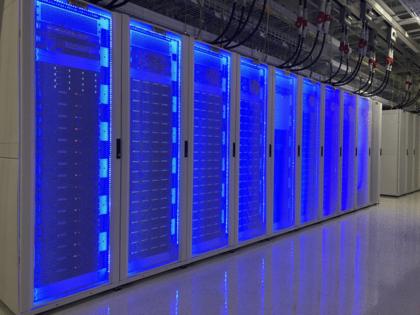Georgia Tech is building a $20 million AI supercomputer
Published in Science & Technology News
Georgia Tech has received a $20 million federal grant to build a powerful new supercomputer in Midtown that will harness artificial intelligence to boost the work of scientists across the nation.
Researchers hope the supercomputer, which Georgia Tech is calling Nexus, can lead to scientific breakthroughs like designing quantum materials and better understanding how the human brain works.
This is not the first supercomputer at the university, but “what is unique about Nexus is that it is going to be designed to provide high-performance computing, artificial intelligence, data analytics and visualization, all of these capabilities in a single system so that researchers don’t have to jump from machine to machine,” Srinivas Aluru, the senior associate dean in Georgia Tech’s College of Computing, told The Atlanta Journal-Constitution.
“The hope is that this will make advanced computing more accessible and seamless for researchers,” he said.
Along with the physical Nexus system, researchers are also creating easier user interface software for supercomputers.
Nexus will have 10 quadrillion bytes of permanent storage, which is the equivalent of about 10 billion reams of paper. If all that paper were stacked in one pile, it would stretch all the way to the moon and a third of the way back to Earth, Aluru said.
The supercomputer will be approximately the size of 12 refrigerators grouped together and will consume as much electricity as a thousand average-sized homes. It will be built and located at the Coda data center at Tech Square and is slated to be completed by 2026.
Coda already has a supercomputer called the HIVE system, which came online more than five years ago. The average useful life span for a supercomputer like that is five years, according to Aluru, because computers get faster and faster every year. The HIVE supercomputer is now operating well beyond its life span, so it will be decommissioned when Nexus is ready.
The processor powering our smartphones “is probably as powerful as the most powerful supercomputer was 25 years ago,” Aluru said.
Ultimately, what matters for Georgia Tech is the science that will be done because of Nexus, not the bragging rights for how big the computer is, said Aluru.
“Science is entering a new era where AI is becoming essential to discovery and is transforming how research is done. But to fully realize that potential, we need infrastructure that is built for this new model of science,” he said.
“With Nexus, we are essentially going to bridge the gap between the infrastructure and using it for scientific discovery.”
©2025 The Atlanta Journal-Constitution. Visit at ajc.com. Distributed by Tribune Content Agency, LLC.







Comments